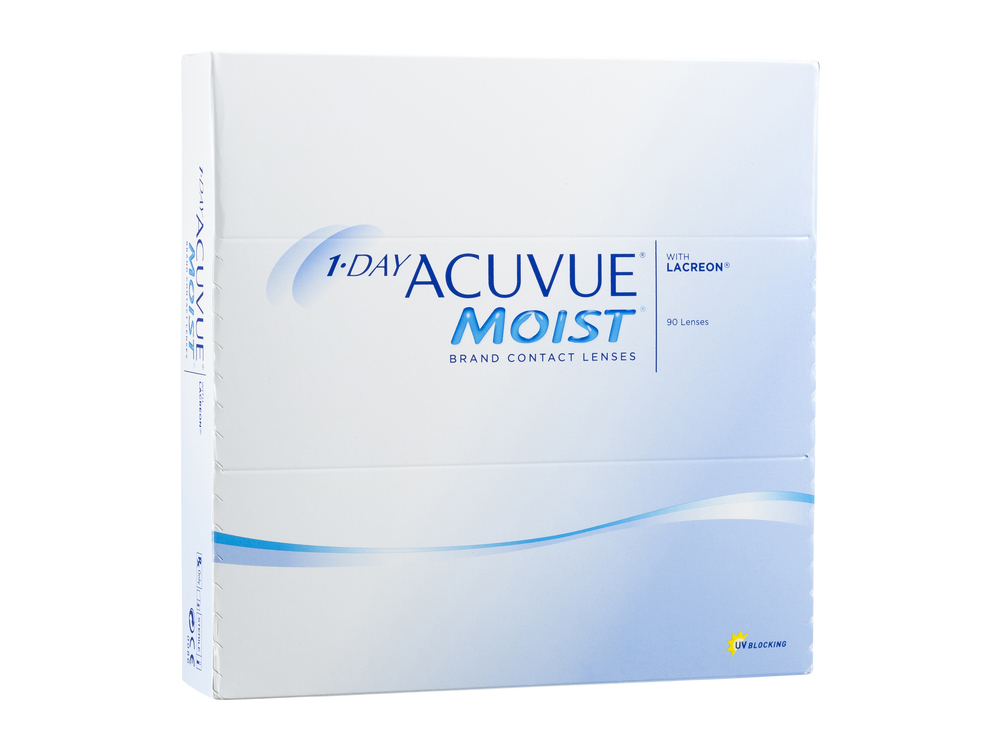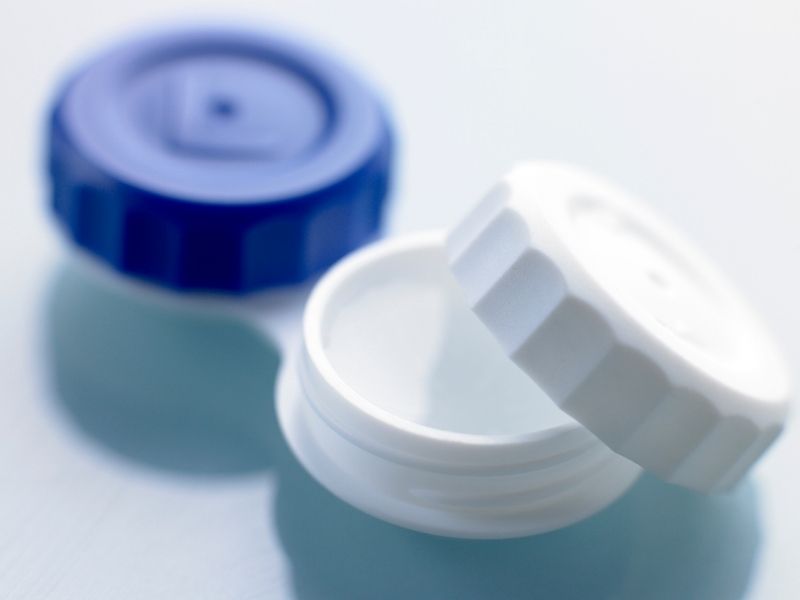
If you once wore glasses but have switched to contact lenses, you know the freedom that comes with making the switch. You’re able to exercise and participate in a number of other activities without having to worry about not being able to see clearly or breaking your glasses.
But could it be possible that wearing contact lenses hinders your safety or eyesight?
We’d like to say no, but research confirms that to be true. That is, when you misuse or do not wear your contacts exactly as directed, there are risks.
Over 40 million adults in the U.S. wear contact lenses
Frighteningly, most wearers do things that significantly increase their chance of exposing the eye to germs and/or damaging their eyesight.
- Over 50% of contact lens wearers reported sleeping with their lenses in
- More than 55% report not changing their contact solution on a regular basis
- 60% said they regularly swam while wearing contact lenses
- Over 90% of people who wear contact lenses significantly increase their risk of eye infections by rinsing their lenses with regular, non-sterile tap water on a regular basis
Your inability or unwillingness to consistently wear contact lenses correctly largely explains the fact the largest risk factor for microbial keratitis, a bacterial infection of the cornea, is in fact, wearing contact lenses!
Considering that most people don’t do right when it comes to wearing contact lenses, is it really any surprise there are over one-million visits to U.S. eye doctors for contact lens-related complications each year?
The good news is that protecting your eye health while wearing contact lenses isn’t difficult. There are several simple, effective steps you can take to ensure you minimize the risk of eye infection and damage.
Wash your hands (more than you normally do)
Washing your hands, correctly and consistently, before handling your contacts will reduce eye infections.

Research from PubMed claims the average person touches their face or rub their eyes between 16 times and 23 times every hour. You know that infectious bacteria and viruses are everywhere—on door handles, on your keyboard, and on your smartphone. As a result, these germs are also on your hands. When you touch your face and eyes, you greatly increase the chance of transmitting these pathogens from your hands to your mouth, nose, and eyes.
In fact, a shocking 80% of the microbes responsible for the common cold, influenza, respiratory infections and eye infections, like microbial keratitis are transmitted by our hands.
Knowing this, it makes the importance of washing your hands correctly before putting your contacts in or taking them out all the more important. 50% of contact lens wearers wash their hands incorrectly, or do not wash their hands at all, before handling their contacts.
Washing your hands with soap and warm water and washing your hands (this includes scrubbing) between your fingers and around your fingernails) for at least a full 20 seconds before thoroughly rinsing and completely drying your hands.
Switch to daily wear contact lenses
The human eye is a complex instrument that contains a number of substances, including lipids, proteins, and calcium. Over time, small amounts of each of these substances are deposited and buildup on reusable contact lenses—even after they’ve been cleaned with the recommended contact lens solution.
Reusable lenses are also more likely to collect higher concentrations of airborne allergens, which can also lead in eye irritation and more eye infections.

are just one of the many daily contact lenses offered at EZContacts.
Wearing a fresh pair of daily wear contact lenses eliminate these problems and significantly reduce your risk of eye infection caused by a buildup of substances and allergens.
Make a clean case for eye health
Wearing dailies also eliminates your risk of eye issues stemming from your contact lens storage case. Think about it: if you wear reusable lenses, you store them in your contact lens case over and over each night. While you might change out your solution on a regular basis, how often are you washing, sanitizing, or replacing your contact lens case?
Consider this: a recent study published by the American Academy of Optometry found that 95% of contact lens wearers had at least one pair of lenses that were contaminated with harmful bacteria. The study concluded that improper storage of contact lenses is a serious contributor to contaminated contact lenses and increased risk of eye infections.
For best results, wash your contact lens case weekly with soap and water and replace it every three months. Research has shown that keeping the same case for longer than six months increases the risk of eye infection by nearly 10 times.

Beware of the water
There are many steps you can take to keep your eyes healthy and safe while wearing contact lenses, but one of the most important things that you should never do is to rinse your contact lenses with tap water.
It’s also important to avoid exposing your contacts to water while showering or swimming. This is a huge problem, especially considering that 90% of contact lens wearers shower with contact lenses in, 60% swim with contact lenses in, and over 50% rinse their contact lenses with tap water on a regular basis, according to a CDC report.
Tap water may be safe to drink, but it can still contain microorganisms and bacteria that can cause infection and damage your eyes. One of the most dangerous of these is an ameba called Acanthamoeba and is commonly found in tap water, well water, and lakes. This tiny amoeba can cause a serious eye infection called Acanthamoeba keratitis, which is painful and extremely challenging to treat. While rare, some cases of Acanthamoeba keratitis require over a year or more of treatment in order to be fully corrected.
The best ways to disinfect your contacts
Contact lenses are such a convenient option to glasses, but when you don’t properly take care of your contact lenses, these benefits can be quickly outweighed by the painful, uncomfortable, and annoying eye health issues that result.
Fortunately, you can take a few key steps to keep your contact lenses free of germs, your eyes free of infection, and your vision crystal clear. Supporting your eye health while wearing contact lenses is as simple as washing your hands on a regular basis, switching from reusable to daily contact lenses—or practicing good contact lens case hygiene—and never exposing your lenses to tap water, shower water, or water from a pool or lake.

